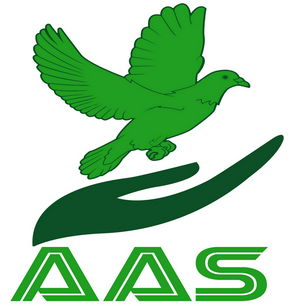Thousands of Rohingya who have been in the ghettos since 1990s were very eager to see the UNSC delegation while they visited to Arakan State. They would like to appeal the UNSC delegation to set them free from ghettos but unfortunately, they could not meet them. How long do we need to live in the ghettos? Why could no one solve our problems and save us from this genocidal ghetto? I heard five members in UNSC have veto power. They could solve World’s problems. Why do they fail to solve ours? Nazir Husein from Badupa IDP camp said.
Myanmar’s army chief, Senior General Min Aung Hlaing with help of States policy has planned to keep us in the ghettos until we all died of starvation and lack of medical access or leave the country. According to Min Aung Hlaing, “Rohingya refugees who return to Myanmar will be safe as long as they stay in the model villages. It means Myanmar prepares a new type of ghettos called model villages. Nazir continued.
Maulana Saeed from Thakkay Pyin ghetto of Sittwe described the situation worse than Nazis program of Holocaust. Issuing National Verification Cards for us, the government denies our citizenship and plans to keep us in the concentrations deprived livelihood, education, healthcare and social activities. We have only two options here; die lack of food and medical access or die in the sea by embarking on the boats for risky journey. Lack of education causes our moral dead. Saeed said.
The main purpose of the United Nations Security Council (UNSC) is to maintain international peace and security. The Veto power should be used to end Genocide, Crimes against Humanity, and ethnic cleaning. Rohingyas hope it would end Rohingya Genocide, refers all those who committed atrocities against Rohingyas to International Criminal Court and implement R2P to save Rohingya.
Myanmar refers Rohingyas as Bengali immigrants from Bangladesh to eliminate all Rohingya despite they have lived in Arakan since centuries. The term Bengali is used by the State as a genocidal strategy against Rohingya. The Rohingya community has been being persecuted in Myanmar for decades and they have lived in the ghettos with severe restrictions on movement and access to health services since 1990s.
More than 140,000 Rohingya whose homes were burnt down during the State back violence of 2012, still live in the concentration camps built for internally displaced people in Sittwe, Pauktaw, Myebon, Minbya, Kyaukpyu, Kyauktaw and Mrauk U. Thein Sein government staged the violence and gave it a name intercommunal violence” that killed hundreds of Rohingyas.
“Suu Kyi government has built some concentration camps which are worse than current IDP camps in Myebon. In current IDP camps, we can get rice provided by WFP but we are not sure we can get it in the new concentration camps or not. Newly built concentration Camps are only one kilometer far from the current camps. There is no hope to find food there. We don’t want to go there but government has been forcing us to move. We demand our own places where we lived before 2012 violence. There were 12000 Rohingya in Myebon before the violence. Now only about 2000 remains in the camps. Ali Ahmed from Myebon IDP camp said.
Since Aug 25, 2017, some 750,000 Rohingya, mostly children and women, fled Myanmar when Myanmar forces launched a crackdown on the Rohingya community, according to the Amnesty International. At least 9,000 Rohingya were killed in Rakhine state from Aug 25 to Sept 24, according to Doctors Without Borders. The US and the UN termed the crackdown ethnic cleansing.
Myanmar and Bangladesh agreed to repatriate refugees but Rohingyas fear to return to their homes without guarantees of safety and basic rights such as freedom of movement. The UN has said conditions on the ground are not safe for the refugees in Bangladesh to return.
Myanmar attempts to eradicate Rohingya community by confiscating our lands and the identity. It has kept us in the ghetto-like situation since 1990. UN Security Council should call genocide to the States crimes against us. We demand to end genocidal operations and persecution of Myanmar Government.
Calling us Bengali it plans to eradicate the whole population of Rohingya keeping us in the ghettos or force us to leave the country. A Rohingya teacher from BuMay IDP camp appealed.
The UN has documented mass gang rapes, killings – including of infants and young children – brutal beatings, and disappearances committed by security personnel. Rohingya have been under persecution since 1965. While UN envoy has viewed the Rohingya issue a hallmarks of Genocide, ASEAN, has confined its involvement to humanitarian assistance. Denying their identity and keeping them in the severely restricted ghettos, Myanmar is forcing Rohingya to leave. ASEAN can be considered supporter of genociders.

